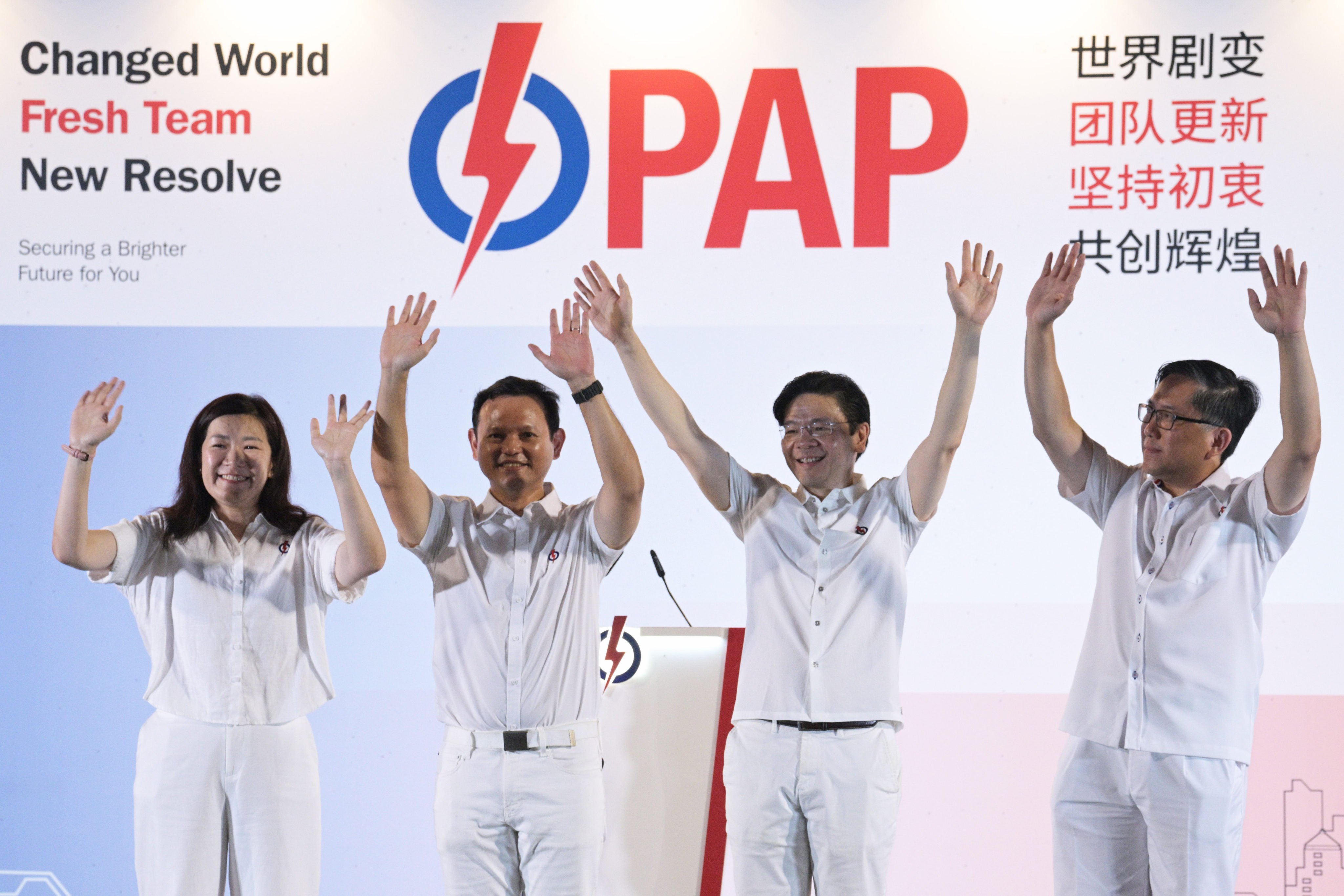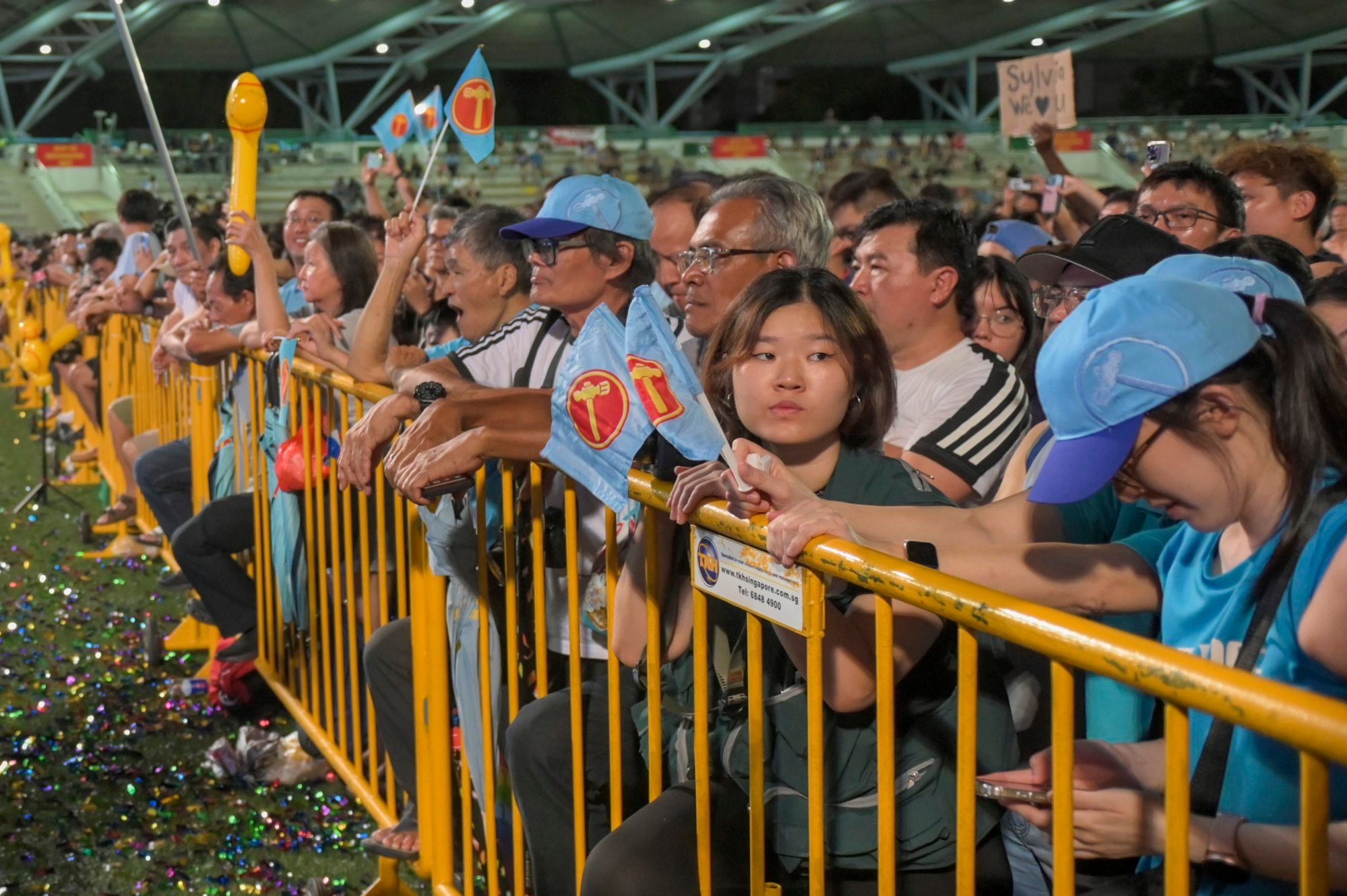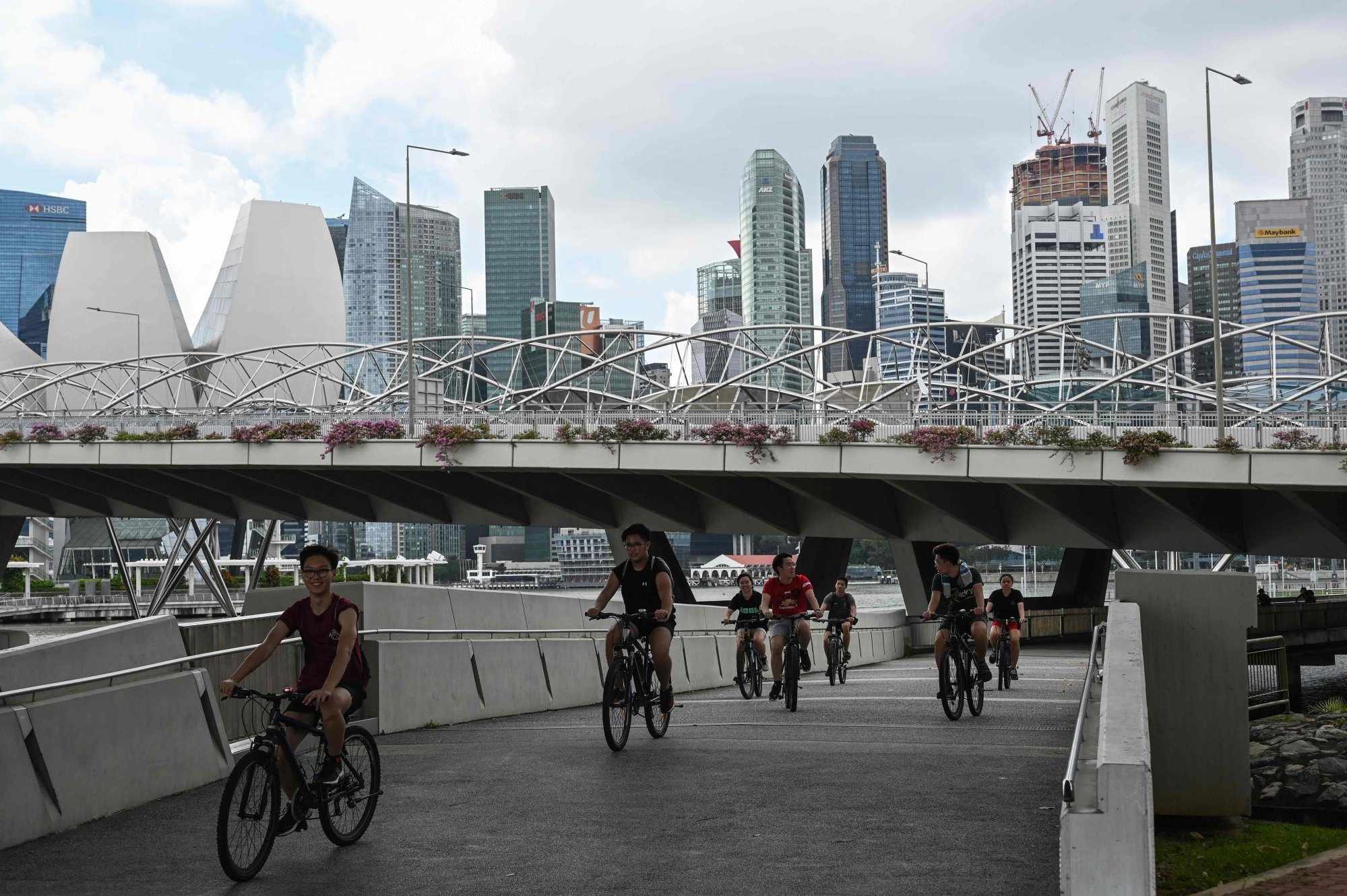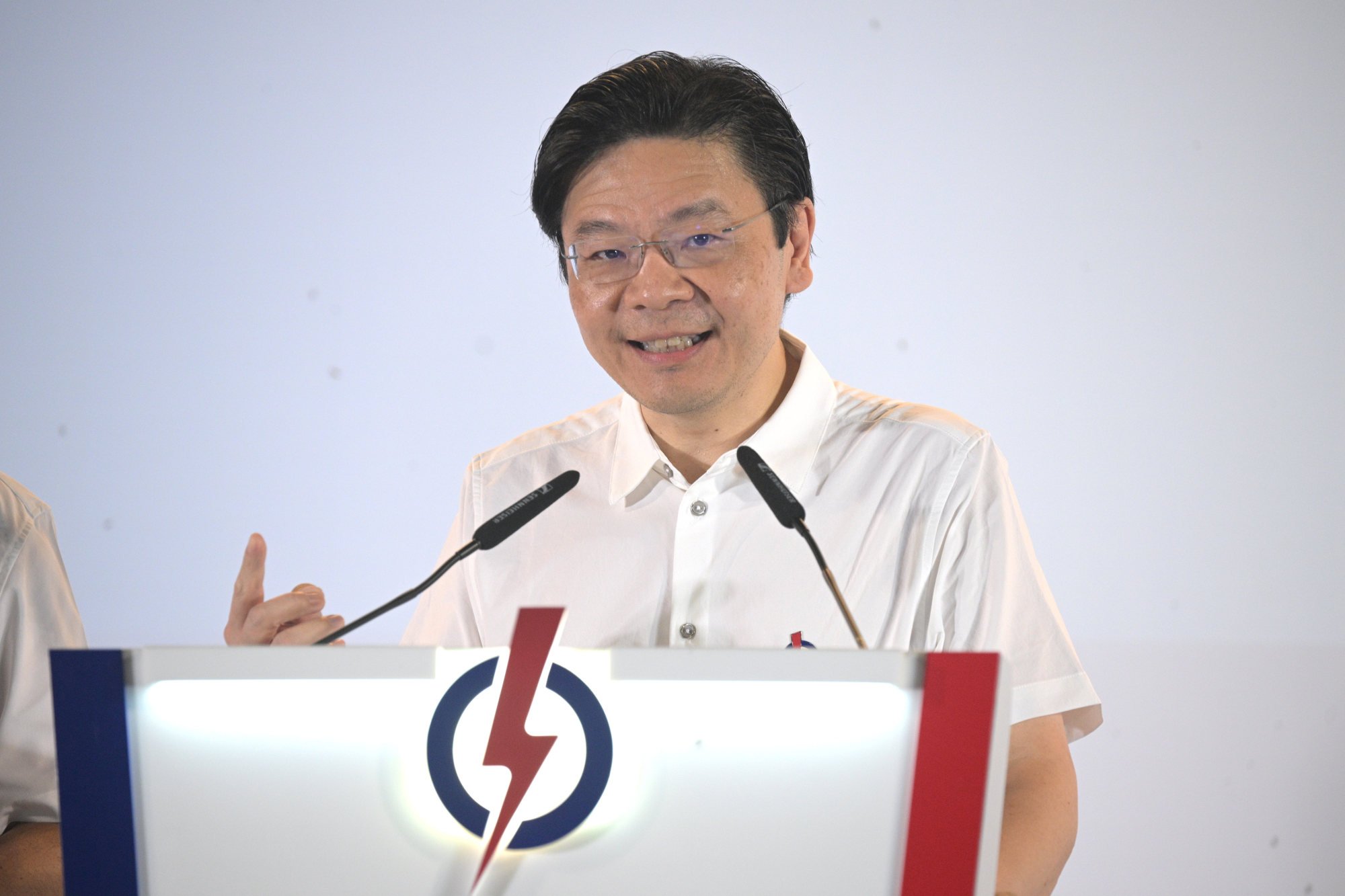Why Singapore’s Gen Z voters are less satisfied with the election results
About 47 per cent of Gen Z voters, born between 1997 and 2004, approve of the poll results, lower than the other age groups, a survey shows

A recent survey after Singapore’s 14th general election has found that while most voters in the city state are satisfied with its outcome, less than half of Gen Z voters expressed approval of the ruling People’s Action Party’s (PAP) resounding victory.
The study, conducted by market research firm YouGov and released on Sunday, polled 1,533 Singaporeans aged 21 and above between May 4 and May 9 in the wake of the PAP returning to power with 65.57 per cent of the popular vote and clinching 87 of the 97 parliamentary seats on offer.
Gen Z voters, born between 1997 and 2004, pulled down the overall average of 56 per cent of respondents who said they were pleased with the outcome of the May 3 polls, with 47 per cent of those among the segment expressing approval, while 35 per cent said they were disappointed with the outcome.
The election was Prime Minister Lawrence Wong’s first as the leader of the PAP, which has governed Singapore uninterrupted since before its independence in 1965.
The survey also found that Gen Z respondents were less likely to feel optimistic about the future under the new administration, with 37 per cent indicating so, lower than the 50 per cent recorded among millennials aged 29 to 44 and the 56 per cent recorded among Baby Boomers aged 61 to 79.
This Week in Asia separately spoke to Gen Z voters about the election results. Several said their sentiments stemmed from the rude awakening that they had been in echo chambers, giving false hope that the opposition would make further inroads in parliament.
Ahmad Amsyar Adom, a 24-year-old psychology and linguistics undergraduate, said he was distraught as he saw the results roll in live at the Workers’ Party watch party at Serangoon Stadium in the early hours of May 4.

“Social media is an echo chamber, and many of us young people, being thought-led by alternative media and activist accounts we were following, were led to believe that the opposition might just take one more constituency,” said Amsyar, who created content on social media rating politicians during the election.
He added that he and his peers were concerned that the stronger mandate given to the incumbent would signal to the ruling party that it could do whatever it wanted.
Wong’s 65.57 per cent was higher than the 61.23 per cent the PAP clinched under his predecessor, Lee Hsien Loong, in the 2020 election. The result bucked the trend of new prime ministers receiving a dip in the popular vote in their first elections compared to the previous elections under their predecessors.
Political observers said Gen Z voters tended to be more sceptical and critical of the status quo, which could explain the discrepancy between these voters and older age groups.
Nydia Ngiow, managing director at BowerGroupAsia, argued that younger voters did not experience the country’s nation-building years and might not feel the same appreciation for the PAP’s track record compared with senior generations.
“This is further shaped by recency bias where for many Gen Z voters, their impressions of the PAP are formed not by its historic achievements, but by more recent frustrations such as rising costs, job uncertainty or perceived slower progress on social issues,” said Ngiow, who also noted younger voters tended to be on social media more, where government narratives were often challenged.
Gen Z voters were also likely to be anxious about the cost of living, housing pressures and the job market, which could fuel a deeper sense of anxiety or even resentment towards political leaders seen as being slow to respond to their urgent needs, Ngiow argued.

“While they might have voted for the PAP as a ‘flight to safety’ during uncertain times, they can still be sceptical about the party’s assurances and its upskilling initiatives. They could also desire greater pluralism that reflects the values that they believe in.”
Independent political observer Felix Tan attributed the discrepancy in the optimism and satisfaction between the Gen Z voters and the other age groups to the younger age group being more critical in general.
“They are more educated, and they are more critical in their decision-making process. They ask lots more questions and are less likely to accept things wholesale,” Tan said.
Cautioning against assuming that younger voters were more in favour of the opposition, Tan said the perception of whether the election was fair might have also had a role to play.
“At the end of the day, it’s about whether they perceived it was a free and fair election; whether everything was equitable in terms of how the election was being run, from the EBRC report all the way to campaigning strategy on the ground.
“Was there equal treatment and fairness to all? Fairness is a big deal to Gen Zs,” Tan said, referring to the Electoral Boundaries Review Committee that reports to the prime minister and redraws boundaries before each election.
This sentiment was echoed by a Gen Z voter who wished to be known only as Grace. The psychology undergraduate, 21, said she was disappointed that the popular vote swung so much in favour of the ruling party and pointed out that losing out on more diverse voices in parliament was not positive.
Grace also criticised the timing of the polls, pointing out it had occurred over a long weekend while many voters might have been abroad. “I’m mainly concerned that the government will move towards a direction where other voices won’t be heard any more.”
Some Gen Z voters, however, were satisfied that the election outcome represented continuity and diversity for politics in Singapore.
One Gen Z voter, who wished to be known only by his surname, Oh, 25, said that he would have liked to have seen Singapore’s main opposition party Workers’ Party (WP) make more inroads into parliament but was satisfied that the other opposition parties did not earn a seat in parliament, as to him, they did not seem to offer much value aside from being “not the PAP”.
“I think that there are too many factors which contributed to the PAP earning 65.57 per cent of the overall votes, but I am nonetheless satisfied as it was a ‘normal’ result that presented stability to outsiders but still demonstrated a desire for alternative views in parliament,” said Oh, a politics undergraduate.
Ngiow said it would be important for Wong to engage such voters who would eventually become the core of the electorate and workforce since their dissatisfaction could harden into distrust or apathy, which would undermine the PAP’s legitimacy.
Referring to Wong’s feedback-centred national strategy, Forward Singapore, Ngiow said: “We have already seen him move toward a more open and inclusive style, and he could consider how to more explicitly involve the younger voters in his Forward Singapore agenda so that they can support him in co-creating future policies not merely as participants, but as genuine stakeholders with influence over national direction.”

In a bid to reach out to younger voters, the PAP leaders have upped their social media game by engaging with content creators, going on alternative podcast shows and even launching a Labubu doll dressed in the party’s whites.
Last month Wong addressed Gen Z voters in a video on social media and rebutted accusations of the generation being “soft” and “full of themselves”. “Your generation embodies a new desire to not settle for the status quo and with the way the world is moving. We hear you. I hear you,” he said.